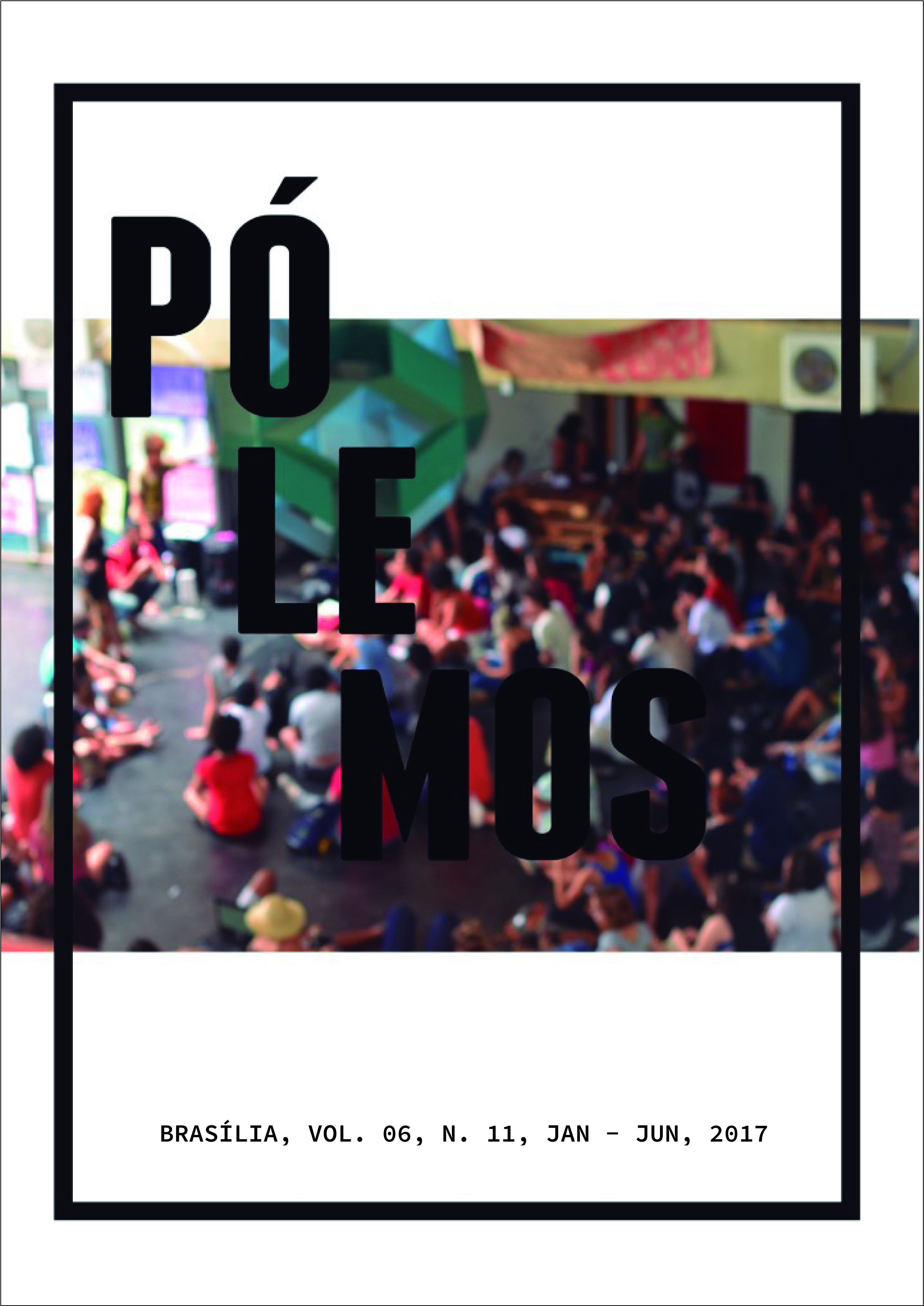SENTIENCE
an essay on the boundary between otherness and solipsism
DOI:
https://doi.org/10.26512/pl.v6i11.11725Keywords:
Animal Ethics. Animal Rights. Otherness. Sentience. Politics.Abstract
The purpose of this study is not to explain the thinking of Francione, but rather to discuss what can be seen in the vicinity of his theory of animal rights, namely: the border between alterity and solipsism, taking into account the sentience as the only characteristic capable of determining the dwelling of the moral field by a subject. The methodology used was the bibliographical review in books and articles pertinent to the discussion, and it was realized that there is a need to discuss the contemporary project of society, science, and ultimately the project as a whole, with a view to non-human animals, because this seems to be (in its current configuration) a point of segregation between humans and non-humans and away from a sufficiently comprehensive theory of the polis.Downloads
References
ABBAGNANO, Nicola. Dicionário de filosofia. 6 ed. São Paulo: Editora WMF Martins Fontes, 2012. 1210p.
BEKOFF, Marc. The animal manifesto: six reasons for expanding our compassion footprint. California: New World Library, 2010. 261p.
BOURDIEU, Pierre. O poder simbólico. Rio de Janeiro: Editora Bertrand Brasil S.A., 1989. 311p.
BRAVO, Álvaro F. Desenjaular o animal humano. In: MACIEL, Maria E. (Org.). Pensar/escrever o animal: ensaios de zoopoética e biopolítica. Florianópolis: Editora da UFSC, 2011. 422p.
CHUAHY, Rafaella. O extermínio dos animais. 1ed. Rio de Janeiro: Zit, 2006. 162p.
DERRIDA, Jacques. De la grammatologie. Paris: Les Éditions de Minuit, 1967. 445p. (Collection « Critique »).
DERRIDA, Jacques. Lettre à un ami japonais, 1987. In: FONTES FILHO, Osvaldo. Escrever o desaparecimento de si em torno de Le Coupable, de Georges Bataille. Fragmentos de Cultura, Goiânia, v.17, n.1/2, pp.41-60, jan/fev. 2007.
DERRIDA, Jacques. O animal que logo sou (a seguir). São Paulo: UNESP, 2002. 92p.
DESCARTES, René. Discours de la méthode. In: DESCARTES, René. Oeuvres et lettres de Descartes, ed. André Bridoux. Paris: Éditions Gallimard, 1952. 1421p.
DONALDSON, Sue; KYMLICKA, Will. Animals and the frontiers of citizenship. Oxford Journal of Legal Studies: Oxford, v. 34. n. 2. pp.201-219. 2014. Disponível em: https://academic.oup.com/ojls/article-abstract/34/2/201/1448869/Animals-and-the-Frontiers-of-Citizenship?redirectedFrom=fulltext>. Acesso em: 16 de ago. de 2017.
DONALDSON, Sue; KYMLICKA, Will. Zoopolis ”“ A political theory of animal rights. Nova Iorque: Oxford University Press, 2011. 329p.
EXUPÉRY, Antoine de Saint. Le petit prince. Paris: Éditions Gallimard, 1999. 97p. (Collection Folio).
EXUPÉRY, Antoine de Saint. O pequeno príncipe. 17 ed. Rio de Janeiro : Livraria Agir Editora, 1974. 95p.
FRANCIONE, Gary L. Animals as persons: essays on the abolition of animal exploitation. Nova Iorque: Columbia University Press, 2008. 235p.
FRANCIONE, Gary L. Animals, property, and the law.Filafélfia: Temple University Press, 1995. 349p.
FRANCIONE, Gary L. Introduction to animal rights: your child or the dog?. Filadélfia: Temple University Press, 2000. 229p.
FREITAG, Bárbara. Habermas e a teoria da modernidade. Caderno CRH. Salvador, v.8. n.22. p.138-163, jan/jun. 1995. Disponível em: <http://www.cadernocrh.ufba.br/include/getdoc.php?id=1423&article=326&mode=pdf>. Acesso em: 25 de jun. de 2016.
HABERMAS, Jürgen. Técnica e ciência como “ideologia”. Lisboa: Edições 70 Lda., 1968. 149p.
JOY, Melanie. Por que amamos cachorros, comemos porcos e vestimos vacas: uma introdução ao carnismo: o sistema de crenças que nos faz comer alguns animais e outros não. 1ed. São Paulo: Cultrix, 2014. 198p.
LESTEL, Dominique. As origens animais da cultura. Lisboa: Instituto Piaget, 2001. 304 p. (Coleção Epistemologia e Sociedade).
PATTERSON, Charles. Eternal Treblinka: our treatment of animals and the Holocaust. Nova Iorque: Lantern Books, 2002. 296p.
REGAN, Tom. Animal rights, human wrongs: an introduction to moral philosophy. Lahnam: Rowman & Littlefield Publishers, 2003. 141p.
REGAN, Tom. Empty Cages: facing the challenge of animal rights. Lanham: Rowman & Littlefield Publishers, 2004a. 229p.
REGAN, Tom. The case for animal rights. 2ed. California: University of California Press, 2004b. 425p.
ROUGET, Patrice. La violence de l’humanisme ”“ porquoi nous faut-il persécuter les animaux?. Paris: Calmann-Lévy, 2014. [E-book].
SCHNEEWIND, Jerome B. The invention of autonomy: a history of modern moral philosophy. Nova Iorque: Cambridge University Press, 1998. 623p.
SOUTER, Gerry. Edward Hopper. Nova Iorque: Parkstone Press International, 2011. 80p.
TYLER, Tom. Como a água na água. In: MACIEL, Maria E. (Org.). Pensar/escrever o animal: ensaios de zoopoética e biopolítica. Florianópolis: Editora da UFSC, 2011. 422p.
Downloads
Published
How to Cite
Issue
Section
License
Copyright (c) 2017 Pólemos

This work is licensed under a Creative Commons Attribution-NonCommercial-NoDerivatives 4.0 International License.
Todos os trabalhos que forem aceitos para publicação, após o devido processo avaliativo, serão publicados sob uma licença Creative Commons, na modalidade Attribution-NonCommercial-NoDerivatives 4.0 International Public License (CC BY-NC-ND 4.0). Esta licença permite que qualquer pessoa copie e distribua a obra total e derivadas criadas a partir dela, desde que seja dado crédito (atribuição) ao autor / Ã autora / aos autores / às autoras.


